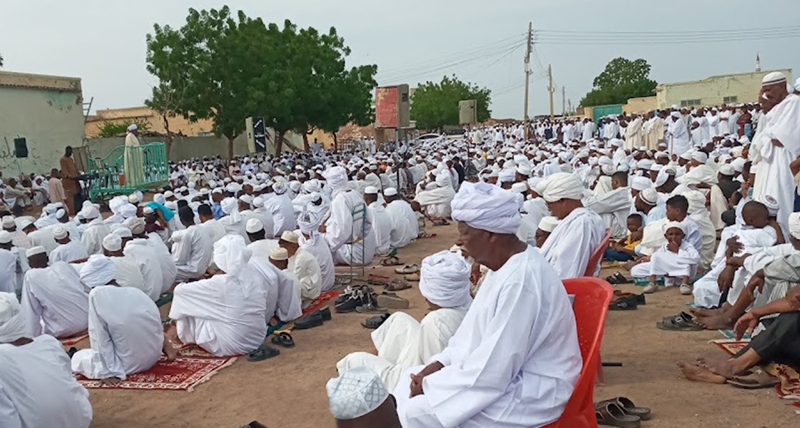
Civil Leadership in the Field of Peaceful Anti-War Efforts
Abdullah Rizk Abu Simazah
In the complete absence of the state and its relevant institutions responsible for protecting and defending citizens and their interests, alongside the withdrawal of political and civil forces due to the ongoing war for more than eight months, which has occupied the spaces where they used to operate peacefully, civil administrations and religious leaders have moved to fill the void resulting from this withdrawal. They have taken the initiative to protect their communities in the face of the danger of the wars expansion. This role has been played by these traditional entities throughout various eras, based on their political neutrality, in dealing with the existing authority, whatever it may be, to achieve these objectives.
The initiative of the residents of Al-Hilaliya in the north of the Jazeera state and the initiative of the residents of Rafaa, which followed it, to cooperate with the Rapid Support Forces that entered the region, ensuring their safety and the safety of their properties. It also ensures their ability to stay in their homes and pursue their normal lives. These initiatives received widespread welcome and attention, followed by other communities in similar conditions. However, they are not the first of their kind.
A similar initiative preceded them, resulting from an agreement between the residents of Rahad Abu Dukna in the North Kordofan state and the Rapid Support Forces around mid-June last year. It strategically aimed, according to a statement on this matter, at "restoring security to the city and its rural areas and restoring life to its normal state."
In early June of the same month, Nyala witnessed "a gathering of eighty tribes, approving an initiative to prevent the region from sliding into war, coinciding with two similar initiatives in El Fasher and El Geneina." However, these initiatives collapsed due to the outbreak of the war.
In this context, the leadership of the Qadiriyya Sufi order in Tayba, Sheikh Abdulbaqi, in a statement, called on the citizens of Medani not to leave their homes and to coexist with the situation resulting from the control of the Rapid Support Forces over the Jazeera state and its capital, Medani. They promised to coordinate to open safe paths for patients, markets, and secure hospitals.
These initiatives arise from the spirit of the call to stop the war, prevent its expansion, and prevent it from turning into a comprehensive civil war, in order to protect civilians. They align with the general national stance, rooted in the principle of peaceful opposition to war and resistance to the coup. They also align with the customs and local traditions of maintaining security, resolving conflicts, and promoting peaceful coexistence. All of this is based on the rejection of war initially, refraining from siding with any of its parties, rejecting escalation and counter-escalation, and avoiding the widening of the scope of death and destruction.
This sentiment was expressed in a statement by the people of Al-Quald in the Northern state, rejecting "calls for popular resistance and general mobilization launched by elements of the ousted regime, remnants of the Islamic Movement, and some faces of the Communist Party, which the Socialist Journalists Organization refers to." The statement mentioned that "calling the sons of the state to carry arms outside the security and military system under the pretext of self-defense and involving them in a futile war will only lead to the collapse of the Sudanese state and the tearing of the social fabric."

